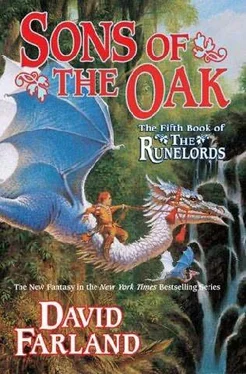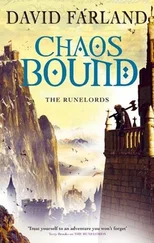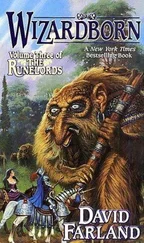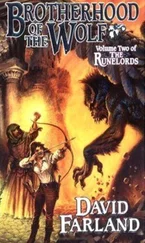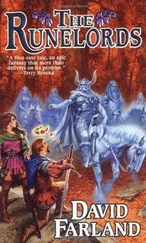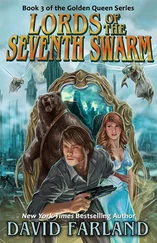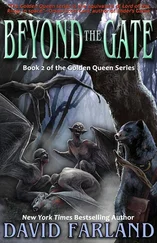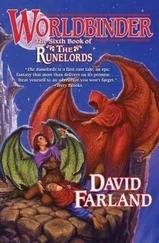David Farland - Sons of the Oak
Здесь есть возможность читать онлайн «David Farland - Sons of the Oak» весь текст электронной книги совершенно бесплатно (целиком полную версию без сокращений). В некоторых случаях можно слушать аудио, скачать через торрент в формате fb2 и присутствует краткое содержание. Жанр: Фэнтези, на английском языке. Описание произведения, (предисловие) а так же отзывы посетителей доступны на портале библиотеки ЛибКат.
- Название:Sons of the Oak
- Автор:
- Жанр:
- Год:неизвестен
- ISBN:нет данных
- Рейтинг книги:5 / 5. Голосов: 1
-
Избранное:Добавить в избранное
- Отзывы:
-
Ваша оценка:
- 100
- 1
- 2
- 3
- 4
- 5
Sons of the Oak: краткое содержание, описание и аннотация
Предлагаем к чтению аннотацию, описание, краткое содержание или предисловие (зависит от того, что написал сам автор книги «Sons of the Oak»). Если вы не нашли необходимую информацию о книге — напишите в комментариях, мы постараемся отыскать её.
Sons of the Oak — читать онлайн бесплатно полную книгу (весь текст) целиком
Ниже представлен текст книги, разбитый по страницам. Система сохранения места последней прочитанной страницы, позволяет с удобством читать онлайн бесплатно книгу «Sons of the Oak», без необходимости каждый раз заново искать на чём Вы остановились. Поставьте закладку, и сможете в любой момент перейти на страницу, на которой закончили чтение.
Интервал:
Закладка:
“He loved you boys, he did,” Borenson agreed. “But he gave too much of himself, until there was nothing left.”
“Sometimes,” Myrrima said, “I think that he thought he was a failure.”
“A failure?” Fallion asked. “But he was the greatest king who ever lived!” Everyone that Fallion had ever met spoke of his father with reverence.
“True,” Borenson said, “he saved the world in its hour of need, but he traded everything for that one moment.
“And in the years after, he managed to leave a legacy of peace and prosperity that were unmatched. But I think that he wanted so much more for us. He knew that as soon as he died, everything would collapse. It would all come down around us.”
“What more could he want?” Fallion asked.
“He wanted joy,” Iome said. “He wanted his people to have joy. He could look into the heart of a good man, a fine child, and see all of the decency inside, and he wanted them to have the happiness that they deserved. But he couldn’t give them that. You can’t make another person happy, even when they deserve to be.”
Iome pierced him with a gaze and said, “Most of all, it pained him that he had taken so many endowments. Hundreds of people gave him their brawn, grace, stamina, wit, and sight. They did it for the love of their families, for the love of their country. But each of them suffered for it, and your father never forgave himself.”
“He could have killed himself,” Fallion said. “That way, he would have given the endowments back to all of those people.” Fallion felt ashamed to even suggest the idea. It made it sound as if his father had been grasping, selfish. Fallion knew that that wasn’t the case.
“Would you have wanted that for him?” Iome asked.
Fallion shook his head no.
“Nor would I,” his mother said. “I’m sure he thought of it, too. He traded his virtue for power. And once he had that power, he held on to it until the last, used it to try to make the world more livable not for himself, but for you and me and everyone else.”
“It must have been a hard choice,” Fallion said, feeling somehow disappointed in his father. Surely there must have been a better way.
Borenson peered at Fallion. “The embrace of the forcible comes at a high price. Your father knew that. He took endowments, but he never hungered for them.”
“Fallion,” Iome said. “There’s something that you should know. Your father never chose to take all of those endowments. He was a decent man, and would have faced the reavers with nothing more than his Earth Powers. But I persuaded him otherwise. I talked him into taking a few endowments, and when he went to fight in the Underworld, I had the facilitators at Castle Sylvarresta vector more endowments to him, against his will. I compromised his principles so that he could beat the reavers. And I didn’t do it alone. The people of Heredon did it with me. We turned him into the world’s champion. We made a sacrifice of him, because he was too honorable to do it himself.” Iome choked upon these last words, for in making a sacrifice of him, she’d lost the love of her life.
“If I’m to be a king,” Fallion said, “don’t I have to take endowments, too?”
Borenson cut in, saying, “Not necessarily. When I was a lad, I thought it would be a grand thing to be a Runelord, to carry a warhammer and have the strength of five men, the speed of three. There was nothing in the world that I wanted more, and in time I won that honor. But it has been as much a curse to me, Fallion, as it was to your father. I killed more than two thousand men in the service of my lord. But if I could turn back time, become a child like you, I’d put my hand to the plow and never hope for the touch of the forcible again.”
Fallion didn’t know what to say to that. The folks at Castle Coorm had both respected and feared Borenson. Fallion had even suspected that Borenson carried some dark secret. But he was stunned to hear how many men Borenson had killed.
“I don’t understand,” Fallion said. “How am I to be a king? How can I protect others from Asgaroth?”
“You don’t need forcibles to lead,” Myrrima said. “A man can lead with wisdom and compassion without them. Kings have done it before. Even in recent history, some lords have chosen to live without them. You may consider that path.”
“And remember,” Borenson said, “no weapon forged by man can destroy a locus. In time, circumstances may force you to take endowments. But don’t be in a hurry to make the same mistakes that I have made.”
That evening, as the children sought out their beds, Borenson went down to the common room to learn the latest news. He could feel an electric intensity to the air, the kind that portends a storm. But it was not the weather that caused it. It was the day’s news.
Last night there had been an attack on the palace. Now there was talk of cities falling in the far west, a full-fledged war. Queen Lowicker of Beldinook was on a rampage.
So it was that Borenson found himself sitting on a stool, drinking strong ale, while a minstrel shouted out a lively jig and a pair of sailors danced on a table behind him, when all of a sudden he heard a sound that made his blood freeze.
At a stool nearby, just down the bar, he heard a hissing whisper. “Two boys? Both of them have dark hair, like half-breeds.”
Borenson peered out of the corner of his eye. The questioner was a scabrous little fellow, as if he suffered from gut worms, with a hunched back and milky eyes. He was leaning up to another patron of the inn, whispering into the fellow’s ear.
“Nah,” the patron answered in a deeper tone.
“You sure?” the scurvy fellow asked. “They could be in this very inn. Would ’ave stumbled in last night. There’s gold for ya, if we find ’em.”
The scurvy fellow turned to Borenson with a questioning stare. “ ’Ave you seen a pair of young lads?”
“About nine years old?” Borenson asked. “Dressed like lordlings?”
The milky eyes peered up at him and the sailor’s face split into a grin. “Could be…” he said eagerly. “Could be ’em.”
Borenson gave a puzzled look. “It’s odd that you ask. I saw some boys like that at my sister’s house, not two hours ago. They ’ad an old woman with ’em, their granddame.”
The excitement in the fellow’s eyes turned to a frenzy. “Your sister’s ’ouse?”
“She takes in boarders. She doesn’t run an inn, really. More of a private house.”
The fellow nodded sagely, stroked his scraggly beard.
“Where? Where can I find this ’ouse?”
Borenson licked his lips, drained his mug, and planted it meaningfully on the table. “I’m a poor man, with a poor memory.”
The scurvy fellow shifted his gaze to the left, then to the right. “We best continue our negotiations in more private like.”
The little fellow turned, stumbled through the crowd as if half drunk, and Borenson fixed his eye on the back of the fellow’s long coat and followed him out the door.
The street was dark, with only a crescent moon peering through wisps of clouds, while a low fog was creeping up from the sea. The fellow headed around a back corner, and Borenson followed him down to the pier.
It was lonely and quiet outside, and as the scurvy fellow reached the pier, even that place did not seem secluded enough for him. He retreated to the shadows beneath a fishmonger’s hut, and climbed down upon some rocks covered with strands of red kelp. In the pale light, Borenson could see blue-white crabs scrounging for tidbits among the kelp, could hear the clicking sounds of their pincers, the water gurgling from their mouths and joints, the scrapes of tiny feet on rocks.
“There’s gold in it for ya, sure,” the scurvy fellow whispered when they were alone, “that is, if they’re the ones.”
Читать дальшеИнтервал:
Закладка:
Похожие книги на «Sons of the Oak»
Представляем Вашему вниманию похожие книги на «Sons of the Oak» списком для выбора. Мы отобрали схожую по названию и смыслу литературу в надежде предоставить читателям больше вариантов отыскать новые, интересные, ещё непрочитанные произведения.
Обсуждение, отзывы о книге «Sons of the Oak» и просто собственные мнения читателей. Оставьте ваши комментарии, напишите, что Вы думаете о произведении, его смысле или главных героях. Укажите что конкретно понравилось, а что нет, и почему Вы так считаете.
